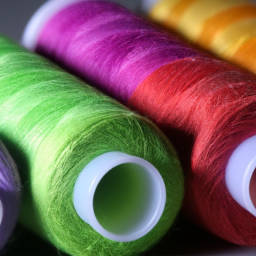
thread.jpg” alt=”Overlockers and sewing threads” />
Overlockers, also known as sergers, are essential machines for seamstresses and sewers who work with woven or knit fabrics. These machines create professional and neat finishes, preventing the unraveling of fabric edges.
When it comes to using overlockers, selecting the right thread is crucial for achieving impeccable results. The correct choice of sewing thread can greatly impact the durability and appearance of your finished project.
Types of Sewing Threads for Overlockers
Overlockers typically require multiple threads to work effectively. The most common types of sewing threads used for overlockers are:
- Polyester Thread: Polyester thread is a popular choice due to its strength, flexibility, and resistance to shrinkage. It is suitable for a wide range of fabrics, making it a versatile option.
- Cotton Thread: Cotton thread is another widely used option as it offers excellent stitch definition and is ideal for natural fibers such as cotton, linen, and wool. It is less elastic than polyester, so it may break under tension if not properly adjusted.
- Nylon Thread: Nylon thread is known for its excellent strength and durability. It is often used for heavy-duty projects or when sewing fabrics that undergo frequent stress or strain.
- Invisible Thread: Invisible thread is a transparent monofilament thread that becomes nearly invisible when sewn. It is used for hems or when you desire a seamless, invisible finish.
Choosing the Right Thread Weight
Thread weight refers to the thickness of the thread. The appropriate thread weight depends on the fabric weight being sewn. For lightweight fabrics such as chiffon or silk, a fine thread of 40 wt or 50 wt is suitable. Medium-weight fabrics like cotton or linen require a 30 wt or 40 wt thread. For heavy fabrics, such as denim or canvas, a thicker thread around 20 wt or 30 wt would be more suitable.
Thread Color Selection
Thread color should be chosen to match or complement the fabric being sewn. When in doubt, opt for a neutral color such as black, white, or gray.
Quality Matters
Investing in high-quality threads is essential for achieving strong and durable seams. Cheap or low-quality threads may lead to increased breakage, fraying, and uneven stitching.
It is also important to store threads properly, away from direct sunlight, excess heat, and humidity to prevent them from weakening or discoloring over time.
Next time you set up your overlocker, make sure to consider the type, weight, color, and quality of the sewing threads you choose. This attention to detail will help ensure your finished project is not only beautiful but also long-lasting and sturdy.
Happy sewing!
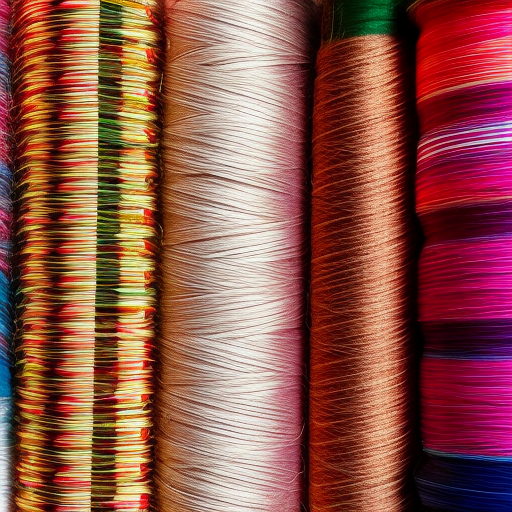
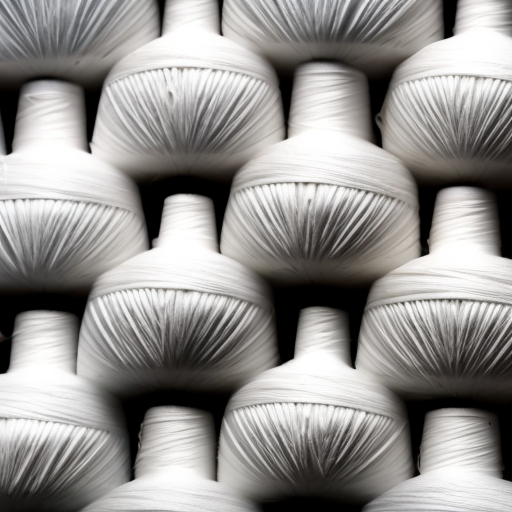
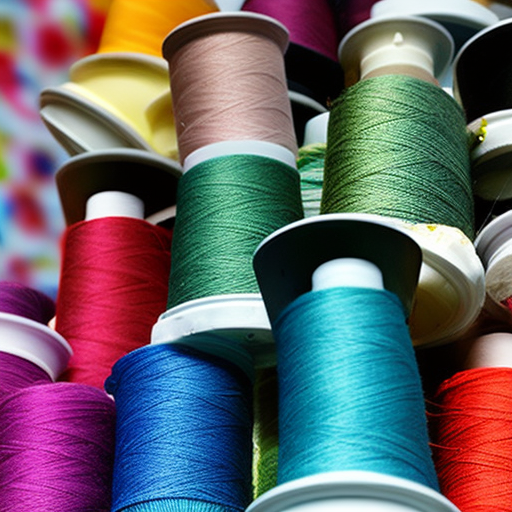
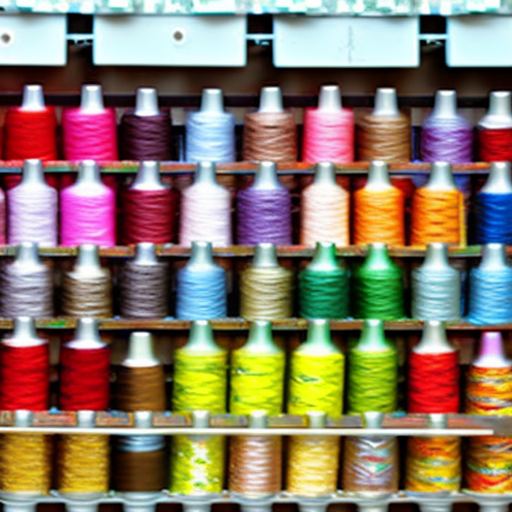

What a great selection!
Martha Cobb: I’ve been wanting to get into sewing, this helps a lot!
What a great idea! These threads seem perfect for getting started with overlockers, thanks for posting this! I’m sure this will help many new sewers get the right materials they need to create beautiful projects.
This is great! I love the variety of colors and textures they offer here.
Wonderful! I’m looking forward to trying them out.